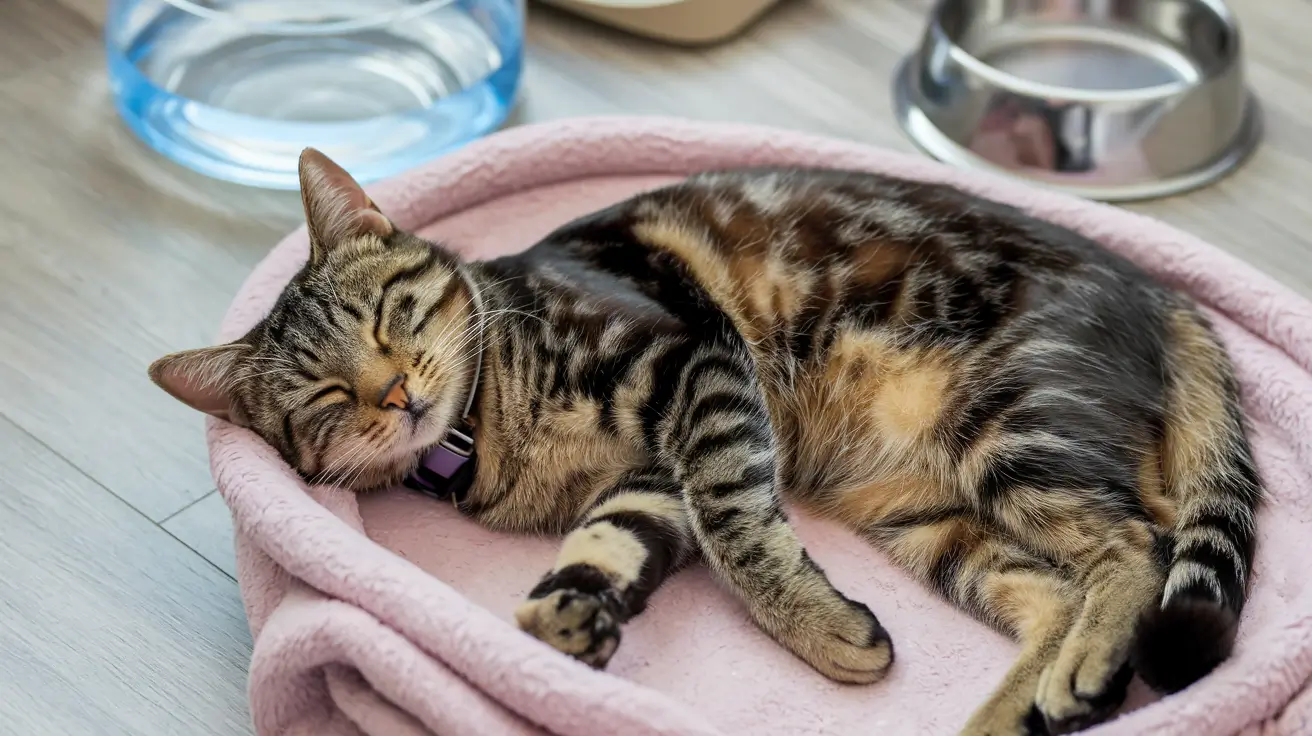Introduction to Feline Diarrhea
Diarrhea in cats is a common issue that many pet owners face. It can be a minor inconvenience or a sign of a more serious health problem. Understanding the causes and severity of diarrhea is crucial for effective management and ensuring the well-being of your feline friend. Recognizing when to seek veterinary care and when home remedies might suffice is an essential part of responsible pet ownership.
Assessing the Severity of Diarrhea
Determining the severity of your cat's diarrhea is the first step in deciding the appropriate course of action. Certain key indicators suggest the need for veterinary intervention. If your cat is vomiting, lethargic, or in pain, these could be signs of a more serious underlying issue. Blood in the stool or diarrhea that is abundant, watery, explosive, or frequent can lead to dehydration, which is particularly dangerous for young, old, or health-compromised cats. Signs of dehydration, such as sunken eyes and dry gums, require immediate attention to prevent life-threatening conditions.
Home Treatment Options
For cases of mild diarrhea, several home treatment options can help manage the condition effectively. However, it's important to assess your cat's overall health before proceeding with at-home remedies.
Dietary Adjustments
Maintaining a balanced diet is crucial for a cat's recovery from diarrhea. Avoid withholding food, as it can hinder intestinal healing and lead to hepatic lipidosis, a severe liver condition. Instead, focus on nutritionally complete cat food and eliminate treats and table scraps. If a recent diet change coincided with the onset of diarrhea, reverting to the previous diet might resolve the issue. Cats with food intolerances may benefit from hypoallergenic diets, which are available through veterinarians or over-the-counter options with novel protein sources.
Fiber and Digestive Health
Fiber can play a significant role in managing certain types of diarrhea. A low-fiber, highly digestible diet is beneficial for cats that produce large stools infrequently. Conversely, fiber supplements like unflavored psyllium or canned pumpkin can help cats with frequent defecation and small feces. Start with one to two teaspoons mixed into your cat's food daily.
Hydration Strategies
Ensuring adequate hydration is essential for cats with diarrhea to prevent dehydration. Keep fresh water available and consider adding diluted chicken or beef broth to encourage drinking. Switching from kibble to wet canned food can also increase water intake. Mixing extra water into canned food is another effective strategy.
Probiotics for Recovery
Probiotics are beneficial for restoring healthy gut flora disrupted by stress, disease, or antibiotics. Choose probiotics specifically designed for cats from reputable manufacturers to speed up recovery from diarrhea.
Safe Use of Medications
While some anti-diarrheal medications are unsafe for cats, kaolin-pectin can be used under veterinary guidance. This supplement helps absorb excess toxins and water, firming the stool safely.
Monitoring Your Cat’s Condition
Monitoring your cat's symptoms closely is crucial. If diarrhea persists beyond 48 hours or if symptoms worsen, such as increased frequency or additional signs like vomiting or lethargy, consult your veterinarian immediately. Early intervention can prevent more severe health issues.
Additional Factors Influencing Diarrhea
Stress and anxiety can exacerbate diarrhea in cats. Creating a calming environment can help alleviate symptoms. Additionally, ingesting foreign objects can cause blockages, leading to severe diarrhea and requiring urgent veterinary care.
Frequently Asked Questions
Common questions about managing cat diarrhea include concerns about kittens and the use of yogurt. Probiotics and fiber can aid kittens with diarrhea, but persistent symptoms necessitate a vet visit. While yogurt is beneficial for humans, it lacks the necessary bacteria for cats and can worsen stomach issues due to its dairy content.
Conclusion
Effectively managing your cat's diarrhea involves understanding its severity and choosing appropriate treatments. Always consult with a veterinarian to tailor advice and treatment plans for your cat's specific needs. By staying informed and vigilant, you can ensure your cat's swift recovery and overall health.






